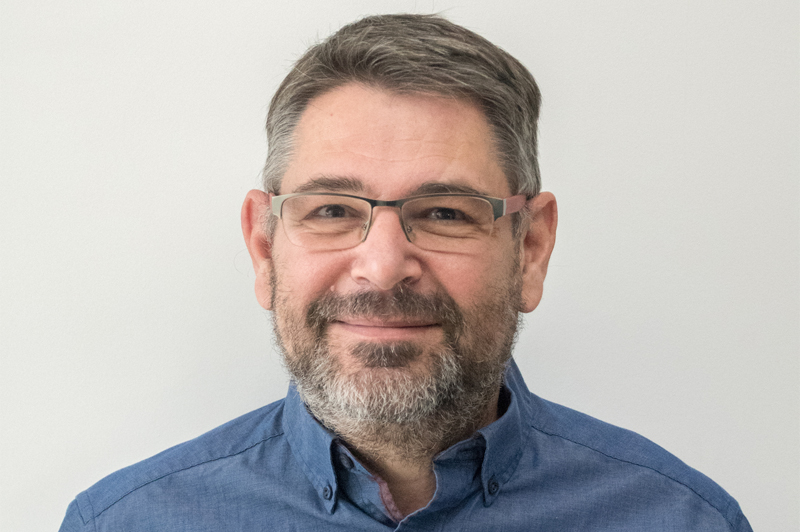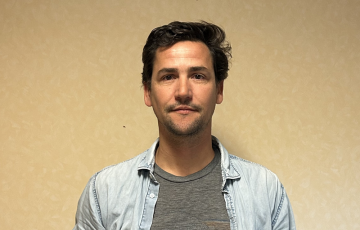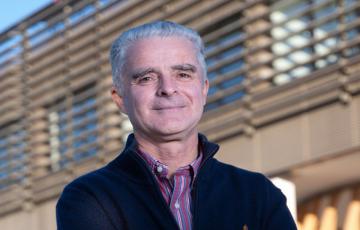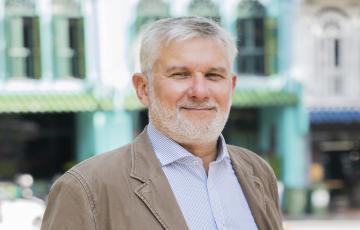Futura Gaïa grows "high-tech" salads on Provence soil

To meet the agricultural challenges of the 21st century
Futura Gaïa is an agritech start-up founded in 2019 in Nîmes (south of France) that develops off-ground cultivation technology used primarily to grow lettuces and herbs. Driven by promising results praised even by Michelin-starred chefs, the company is building a 20,000 ft2 demonstrator in Tarascon that can produce one million heads of lettuce per year. After raising €2.5 million, Futura Gaïa is initiating another round ‒ this time to amass several tens of millions of euros to scale up to industrial-sized farms. The plan will require one hundred employees over the next five years and advanced negotiations with farmers and France's markets of national importance.

The lettuce grows under artificial light in odd-looking cylinders that resemble washing machine drums. Pascal Thomas, the founder of Futura Gaïa, explains this scene straight out of science fiction that just might provide a partial solution to the problems caused by climate change, especially drought.
"They are called 'Gravity Injection Grow' and are manufactured in Canada; the rotation stimulates the plants. Since 2019, we have been working to develop a 4.0 farm. We incorporate high-tech solutions, like robotics and algorithms, but we are also working on the agronomy side with 'nutrimix', which calculates the right amount of micro-nutrients," notes the software engineer who comes from a long line of agronomists.
A demonstrator for the vertical crops of the future
The adventure began when he bit into a delectable strawberry in Canada that had been grown artificially in a 15-inch cube by his daughter, who is also an engineer. Things really took off from there, despite the pandemic. The Rodilhan family farmhouse was transformed into an R&D lab that delivered convincing results, propelling Futura Gaïa immediately into the demonstrator stage. Since September 2020, a former logistics building with 20,000 ft2 of floor space at the Roubian industrial park near Tarascon has metamorphosed into the vertical farm of the future. The company designs 1,700 square foot units that are 23 feet high and can accommodate 36 crop systems. The climate conditions created can grow 15,500 heads of lettuce every 27 days. The systems are stacked on three levels with 13 harvests per year and no risk of adverse weather events! "In February 2020, we began running 12 of the 48 systems for phase one and we are aiming for 198 systems by the end of 2021," Pascal Thomas shares. Half of the total investment amount of more than €3 million came from a fund-raising series last March.
Another found is under way to raise several tens of millions of euros to scale up and build multiple farms with 432 systems that can produce two million heads of lettuce per year, which would be 1% to 2% of the annual consumption of the city of Marseille.
A doubling of the workforce by the end of 2021
This still-young project holds broad appeal for farmers who, after the innovation of greenhouses, may find it offers new opportunities for growth. Discussions are also taking place with the markets of national importance ("MINs") in Cavaillon, Les Arnavaux, Châteaurenard, Toulouse and Rungis. These structures would mean lettuce no longer needs to travel 750 miles because it could be grown right at the MIN!
"Provence Promotion helped me understand the assistance mechanisms in the region and introduced me to key actors in agribusiness (Châteaurenard MIN, the Grand Marché de Provence cluster, the Tecchnopole d’Environnement de l'Arbois) and local government (ACCM, Pays d'Arles CCI)," adds Pascal Thomas.
Futura Gaïa has a staff of 21 employees, including agronomists, software developers, robotics specialists and business experts. "If our investment round is successful, we will double our staff size by the end of the year, on our way to 100 jobs in five years," Pascal Thomas declares. With its focus on salad and herb production, the company is targeting mass retail and cities with more than 100,000 inhabitants. It also envisions cosmetic and pharmaceutical applications for its technology.


 +33 4 96 11 60 00
+33 4 96 11 60 00







